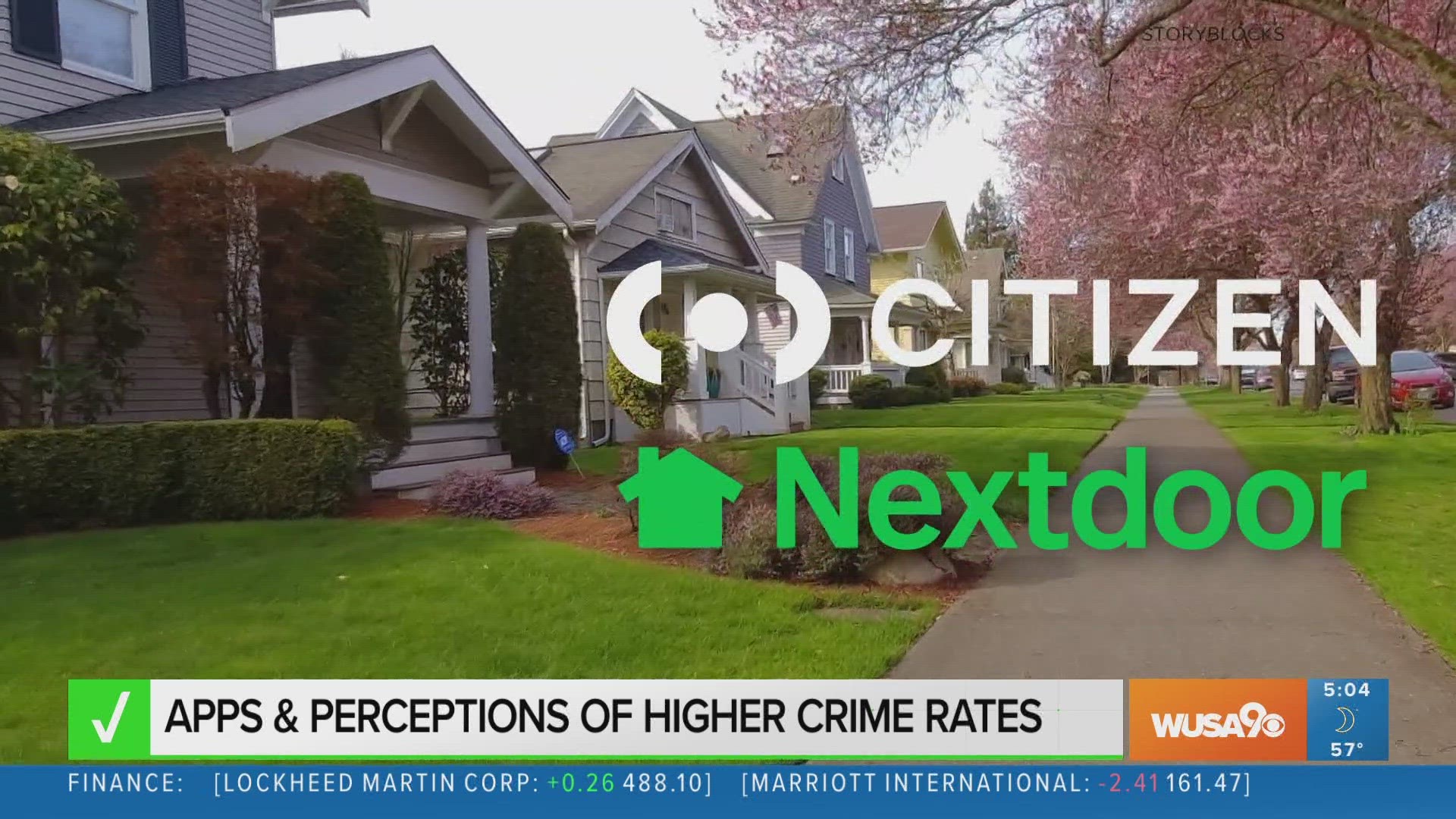WASHINGTON — Do you feel safe in your neighborhood? How often do you check on your neighborhood app like Nextdoor or Citizen?
For years there’s been speculation that the answers to those questions could be related, and now a new study finds a correlation.
THE QUESTION:
What did the study find?
THE SOURCES:
- The study, “Crime in your area: Use of neighborhood apps is associated with inaccurate perceptions of higher local crime rates”
- Adam K. Fetterman, one of its authors
THE ANSWER:
People who often use hyper-local apps are likely to believe crime is more rampant in their community.
WHAT WE FOUND:
“Crime in your area: Use of neighborhood apps is associated with inaccurate perceptions of higher local crime rates” findings come from surveying a widespread sample: 400 citizens in 43 different states, asking if they use Nextdoor or Citizen, and about their perception of the crime rate in their community.
Researchers accounted for any actual increase in crime–if people believe the neighborhood is less safe, because it is less safe, their perception is not necessarily connected to using an app.
They looked specifically at these community-centric apps because they’re fundamentally different from wider-network social media. That hyper-locality, plus the way apps decide what you see, could lend to some of this bias.
For example, a post about a neighborhood troublemaker will likely get more comments than about a garage sale and researcher Adam K. Fetterman says that could mean you're more likely to see the troublemaker post.
“The algorithms that certain apps use are going to amplify the things that get the most attention, and so if it's amplifying those things, it's just going to be more and more stuck in your brain," he said. “These are the things that grab attention. And so when they're grabbing attention for people who may not be expecting it, it can lead to these biases."
Researchers call the findings of this study “theoretical.” That means they’ve established a connection between app use and crime perception, but say the two aren’t wholly tied together.
“So every single person who uses the apps is not somebody who's scared and wielding guns and everything because of their neighborhood," said Fetterman. "It's, it's a theoretical effect.
This has been studied before—a concept called “availability bias.”
“What’s on your mind or what's more salient in your mind is what is going to impact or bias you and the way that you make judgments about the world," he said.
In previous research, that effect has been seen with people who consume a lot of local crime news.
Fetterman says staying up to date can empower people and keep them safe, but it’s important to recognize that perception doesn’t always match reality.
“Other research in this area has shown that people who tend to show these heightened crime rates or bias crime rates are more afraid to go out into their community," he said. "One of the actually one of the findings that we show in social psychology often is it's just learning about these biases actually can reduce the biases."
While this might seem obvious to people, to keep it in perspective, that social media isn’t the same as real life. But for many others, the study’s authors say this can be a good reminder.

